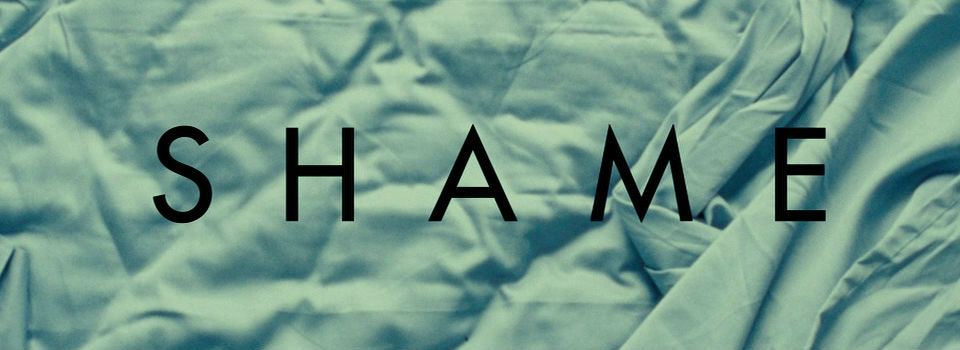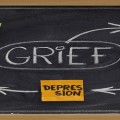
My previous post, “The Stages of Grief” continues to be one of the most viewed posts on our page. On a daily basis a number of individuals are “googling” these terms, searching for something or someone to direct them through the grief process. In this post, I want to revisit the stages of grief after a suicide. Grieving the death of a loved one who died this way is extremely complicated. There are a number of elements that come into play. As a survivor and therapist, I believe these elements have yet to be incorporated into the traditional stages of grief. I want to talk about shame, and how this painful feeling can impact those who are working through the stages of grief after suicide.
Shame is a feeling that is rarely associated with the stages of grief. Why? When you lose a loved one to natural causes there is rarely feelings of shame associated with the death. Even an unexpected loss rarely leaves those left between feeling shame. How could you feel shame when someone you love dies in a car accident or loses their battle to cancer? Shame is an extremely powerful and often painful feeling. It can leave you feeling alone, helpless, and vulnerable. So, how does it impact those grieving in the aftermath of suicide?
I remember receiving the call after the police arrived at my sister’s door notifying her that my father had taken his life. We spent hours on the phone until I left for the airport to fly back to Colorado to be with my family. One thing we pondered was, “What are we going to tell people?” I, being the open book that I am, never thought to tell people anything but the truth. My father took his life; that was the reality of the situation. But, what would people think? Would his character be in question? Would people judge him or our family? These were all questions that we asked ourselves. Questions that only survivors have to even think about. My father was far from perfect, but he was a good man. I do not want him to be stereotyped. I do not want him to be remembered as the man who took his life. Yet, as I worked through my own grief I found it difficult to process my own emotions and work through the stages because of the element of shame. The looks that I received when I told someone how my father died made me want to hide, and I did for quite sometime. It was exhausting talking to others as I found myself offering them words of comfort instead of the reverse. I found myself prefacing his death with stories about his character and the man he was. I wanted everyone else to know that he was a good man, and should not be judged by his final act. It was exhausting.
Shame is a difficult emotion to work through. The only person in this world who can take away the shame that you feel is yourself. I conquered the feelings of shame by not allowing society to have control over me and my feelings. There will always be people who think that what my father did was selfish. There will be those that do not believe that my father is in a good place, finally at peace. That is ok. I will not allow these people to stop me from telling my story. I will not allow them to impact my belief that my father has finally found his peace. I will continue to write and talk openly about suicide in hopes that it will lessen the shame that other survivors may feel.
If you are grieving the loss of a loved one to suicide and have experienced the impact of shame please know that you are not alone. As someone who has carried the heavy weight of shame on my shoulders, I offer a word of advice. Do not allow others to dictate how you should feel. Remember and honor your loved one in a manner that allows you to heal. Seek support from those who make you feel better, not worse. Find a place where you can talk through your grief without feeling shame.
There is no instruction manual for grief, and suicide further complicates the process. Please know that what you are feeling is normal, and you are stronger than you think. I can promise you that.
Image courtesy of Shame the movie.



Thank you. I lost my Son to suicide eight years ago. People say that i should be over it and after all he took his own life . How long do you expect us to listen to you and understand ? Glad that you at least understand.
Hi Heather. We most definitely understand. As a survivor I feel that we are always grieving the loss of our loved one as it is difficult to move on when there are often so many unanswered questions. I have found that the best supports are other survivors. They are the only ones who truly understand.
Only time will help you deal with the pain of a loss, I don’t see how anyone could ever “get over it” no matter how that loss happened!
Yvette, yes! I hate the whole “get over it” line. I recently saw a quote that I loved….”It’s not about getting over it, but getting through it.” I will never get over the loss of my father. But, I have found a way to get through the pain. I would say that time and GOOD SUPPORTS help us heal.
Tomorrow it will be 4 months since my husband took his own life. He had Bipolar since before I met him 23 years ago. Most people I know I tell them the truth. But when it is someone I don’t know that well, I do tell them he passed from suffering a long illness. He had compromised kidneys due to long term use of his Bipolar medication. He had gout, and due to the medication he could not take the normal medication for pain relief. He hurt himself the first of this year and was off on workers comp. During that time he was in physical therapy, he suffered a hernia that his Bipolar mind convinced him he would never be able to go back to work. And felt he failed our two sons, our granddaughter and me. And every time I go through telling people all what I just said, proves that I feel the shame also by feeling the need to explain why he took his own life.
Cindy, I am so sorry for your loss. There is such a strong stigma surrounding both suicide and mental illness. Through our blog we are trying to normalize both suicide and mental illness. I realize we have a long way to go, but do hope that survivors will at least find a place where they feel understood. I know that people will always have their opinions about my father and his actions. Sometimes it is just easier to say something other than the truth. It is exhausting defending your loved ones’ character. Through my healing I have found that the only person that needs to know how great my father is, is me. I am sure your husband was a great husband, father and grandfather. It is so hard to lose someone to a mental illness, as they have little control over the thoughts that are brought on my forces out of their control. Shame is a normal feeling and hard not to experience when we lose a loved one to suicide. Please know that you are not alone in your feelings.
It seems there are two shames associated with suicide grief, then. The first is that some people feel shame about the suicide act itself, the manner of death and what it seems (emphasize “seems”) to implicate about the one who died – weakness, or selfishness or failure. Socially, we are making progress on this, believe it or not, but its still there and complicates the ability to seek support for some grievers.
Then there is the shame of grieving the suicide itself, which seems to be what Heather above commented on (and I am so sorry you get this). Those who have pre-determined there is a “right way” and a “right time or duration” to grieve will knowingly or not shame others with such remarks, telling someone how they should feel. Forget about them. They don’t know and they can’t know and we don’t wish that on them.
I’m not great with words. But Thank you for giving my thoughts substance. I also struggle with the question , “how many children do you have ?” Sometimes i tell the truth and say three. The next question is always how old ? Again sometimes i tell the truth and say that my Mark would be 28 but died eight years ago , which invariably leads to why? Sometime i tell the truth but then sometimes i evade and say he got mixed up with drugs. Sometimes I’m just to tired to deal with all the questionsand say that i only have two children. After all some people and some conversations will never go anywhere or amount to anything. But i always feel that i have betrayed my Mark when this happens. I’ve tried every answer under the sun and still don’t have an answer as to how to answer.
Heather, I am so sorry for your loss. Does this ever get old hearing? I struggle with saying it, as I have gotten tired of people telling me that!
In regards to what to say when people ask, I think it is completely up to the individual. Depending on my audience, I often do not elaborate on my story, as I am already aware that they will be judgmental. And unfortunately, there are still people out there who refuse to accept anything different than what they believe. Isn’t it interesting how nosey people can be? Why do we need to know how others passed?
Telling people our story and how we lost our loved one is never easy. Unfortunately, there is no right or wrong. I do believe that your son Mark would not feel betrayed by your actions. I did not know Mark, but I do believe that those that took their lives do not want their loved ones to carry the burden.
Well stated CJ. I completely agree with your comments. I also believe there is a shame associated with the grieving process itself after losing a loved one to suicide. This shame can also intensify the anger stage of grief. I also believe that individuals can get stuck in this stage often feeling intense anger for an extended amount of time. This takes a heavy toll on the soul and impacts ones’ ability to not only grieve, but to heal.